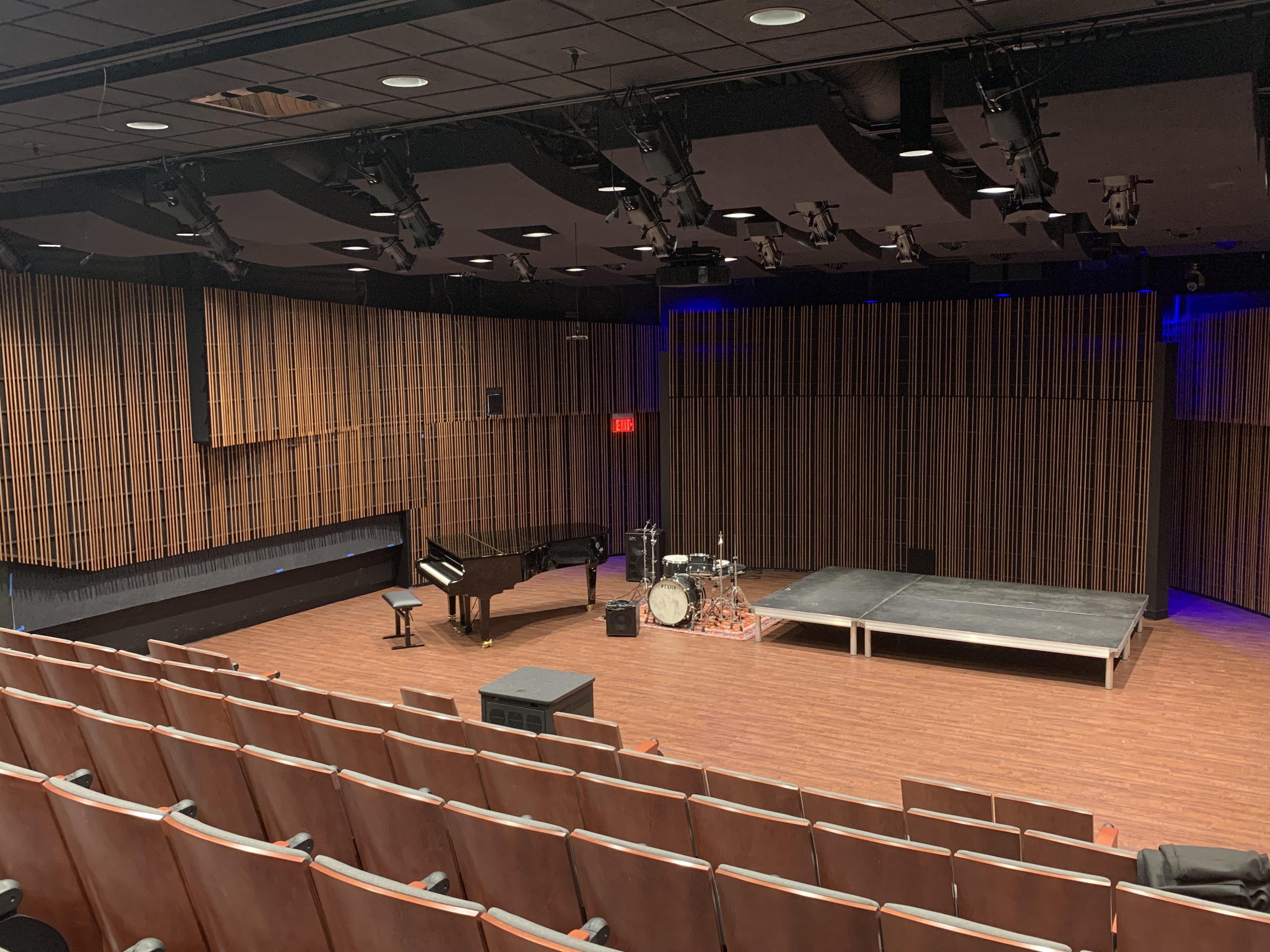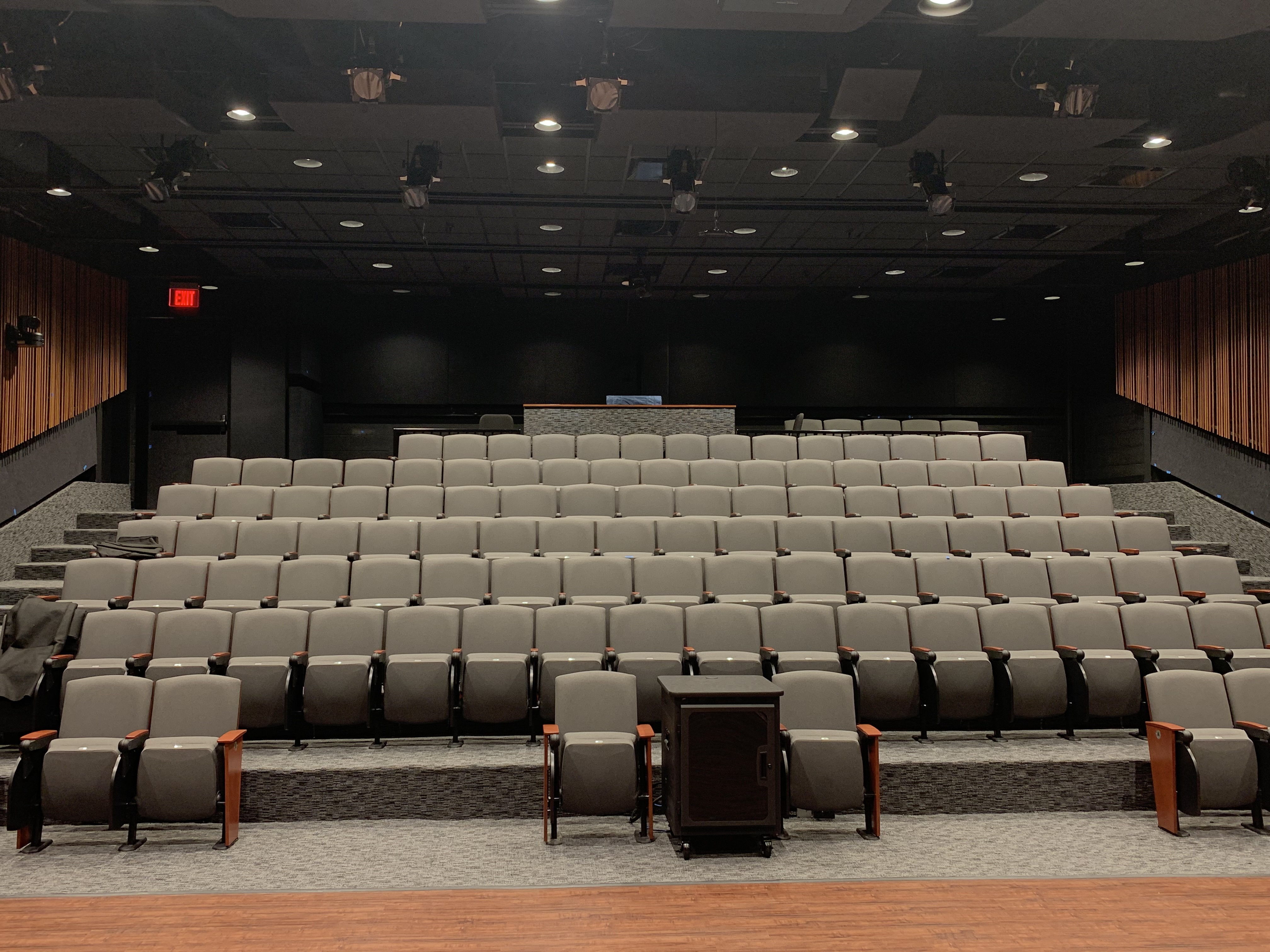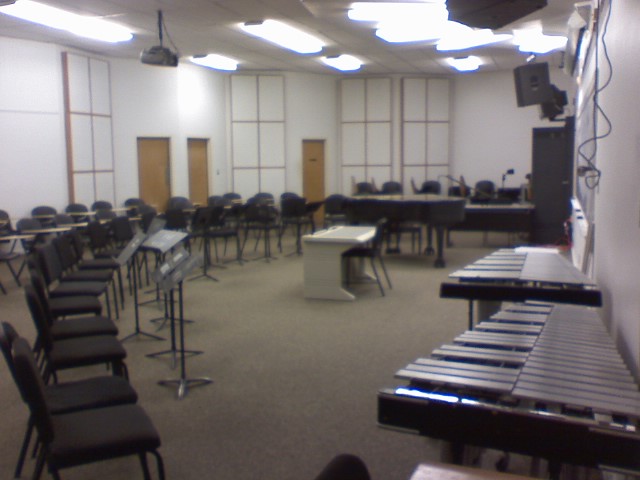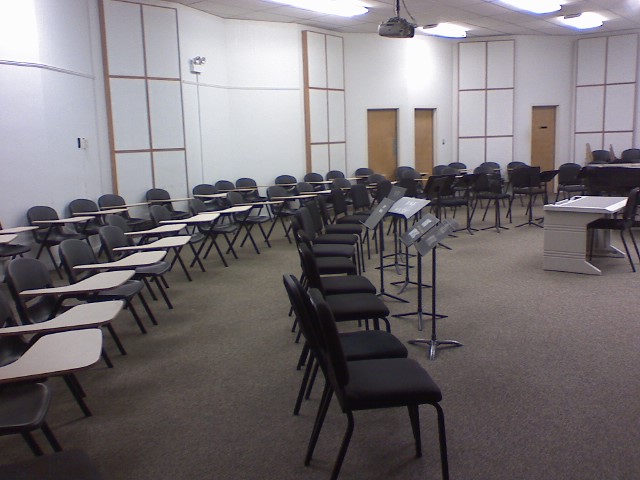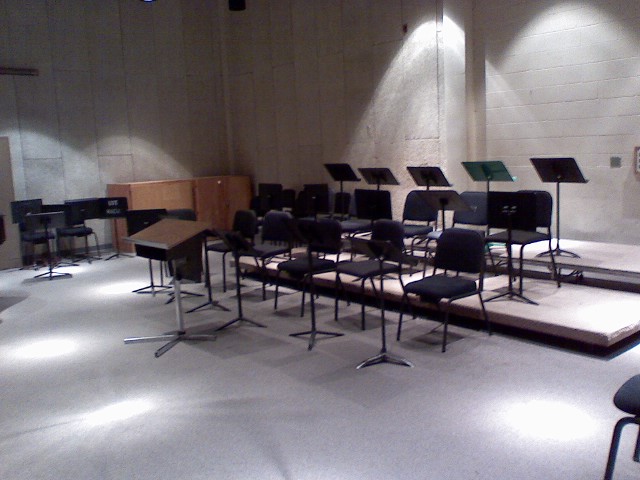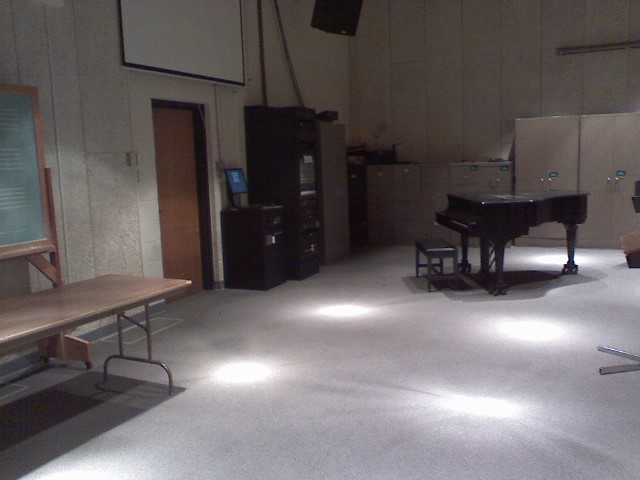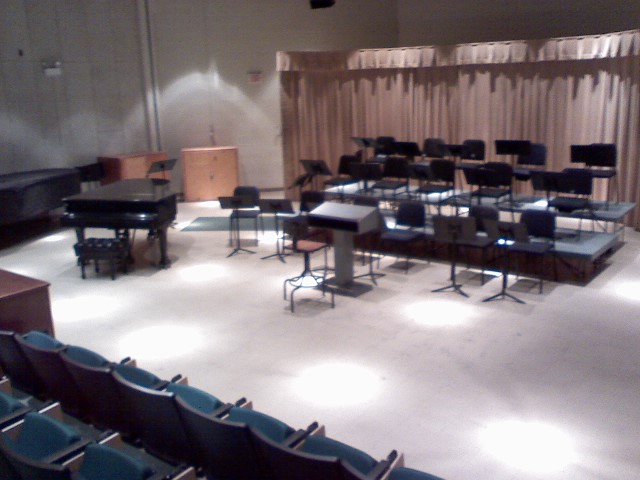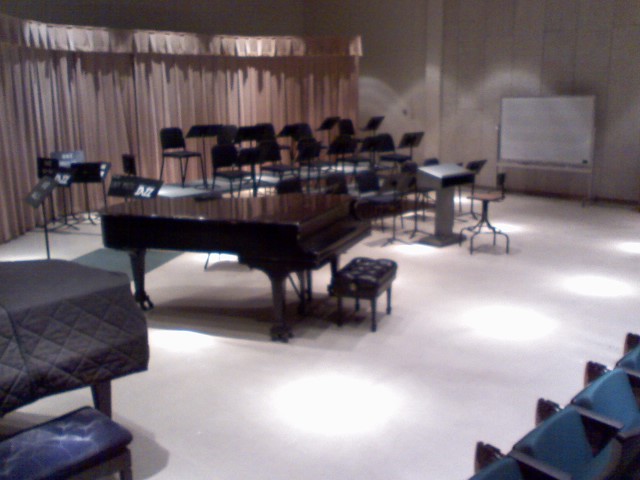Last updated: September 19, 2023
The purpose of this page is to explain the process of assigning leveling and review courses to students who are entering the M.M. in Jazz Studies program. Leveling and review courses for students in the DMA in Performance with local concentration in Jazz Studies are handled individually by the Jazz Studies graduate advisor. If you have any questions about this topic, please contact the Jazz Studies Division Chair, Division of Jazz Studies Graduate Advisor, or the graduate advisor in the College of Music Office of Graduate Studies.
This process is intended to be transparent. The purpose of leveling and review courses is to make sure that new graduate students have adequate preparation for graduate work.
Review courses may be assigned as a result of the Graduate Placement Examination (GPE), which is required of all new graduate students. Leveling courses may be assigned as the result of a review of your undergraduate transcript. The standard we use for this comparison is the Handbook of the National Association of Schools of Music, sections VIII-B and IX-F.
It's very important for you to understand that you have a role in determining how many hours of leveling and review courses you will be required to take. If you prepare well and pass all parts of the GPE, you'll have no hours from that category. If you prepare well and pass all of the jazz history proficiency exams and do well in placement auditions and the arranging review, you can ensure that you will have the minimum number of jazz studies leveling courses to take. The assignment of leveling and review courses can be discussed with your graduate advisor. If a course was assigned because a certain course was not found on your undergraduate transcript, for example, and it is present on the transcript and you point that out to the advisor, the list of leveling courses can be revised. Finally, if you think you can demonstrate that you have the knowledge and skills that are required by a course on your list of leveling courses, whether you have an equivalent course on your transcript or not, you can ask to demonstrate that. If you do so successfully, the course can be removed from the list.
Graduate Placement Exam (GPE) review courses
All new graduate students must take the Graduate Placement Examinations during new graduate student orientation prior to their first semester of enrollment. New graduate students receive information about these exams along with information about new graduate student orientation. Be sure to check your EagleConnect email for this and other important emails. Beginning in Fall 2019, only the post-1750 portion of the music history exam will be required for Jazz Studies majors.
An exemption policy exists for the music history portion of the exam. The policy is published on the College of Music Graduate Studies site. Note the deadline for applying for the exemption.
Several courses can be assigned as review courses depending on your score on the GPE and the degree you are seeking. Students who are admitted are provided with information about the prep course.
For Jazz Studies majors, review courses with MUMH and MUTH prefixes must be passed with a grade of C or higher in order to count towards the Jazz Studies M.M. degree.
Leveling Courses assigned as a result of transcript evaluation
All leveling courses in this section must be passed with a grade of B or higher in order to count towards the degree.
1. Prerequisites for Jazz Improvisation classes
All new jazz M.M. students must take these proficiency tests before the start of their first semester. Jazz fundamentals courses taken elsewhere are not accepted for transfer credit. NASM policy: VIII-B-2-a and b, XI-F-3-a.
If you do not pass one or more of the proficiency exams, you will be directed to take the corresponding graduate review course:
- MUJS 2500 - Theory IV (Jazz) [Offered in Spring only] > MUJS 5362 - Graduate Review of Jazz Theory
- MUJS 2510 - Aural Skills IV (Jazz) [Offered in Spring only] > MUJS 5361 - Graduate Review of Jazz Aural Skills
- MUJS 1014 - Keyboard Skills IV (for Jazz Studies Majors) > MUJS 5363 - Graduate Review of Jazz Keyboard Skills
2. Jazz Improvisation
Starting level is assigned by audition with the improvisation faculty at the start of each fall and spring semester. Improvisation courses taken elsewhere are not accepted for transfer credit. Improvisation skills equivalent to the level of MUJS 2360 and 2370 are required for admission to the program.
- MUJS 2360 and 2370 are required prerequisites for MUJS 5480 - Pedagogy of Jazz.
- MUJS 3360 and 3370 are prerequisites for MUJS 5490, Advanced Jazz Improvisation (Performance track).
When you are placed into a level of improvisation class, that you don't have to take the courses underneath that level. For example, if you are placed into Improv 3 (MUJS 3360) by audition, then MUJS 2360 and 2370 are automatically taken care of in your list of leveling courses. NASM policy: IX-F-3-a.
The undergraduate course in which these skills are taught are:
- MUJS 2360 - Jazz Improvisation I
- MUJS 2370 - Jazz Improvisation II
- MUJS 3360 - Jazz Improvisation III
- MUJS 3370 - Jazz Improvisation IV
If you do not pass one or more of these proficiency exams, you will be directed to take MUJS 5370, Graduate Review of Jazz Improvisation.
Jazz vocalists who are advised to take Improv levels 3 and 4 will take MUJS 5120 and MUJS 5130.
3. Jazz Arranging
Arranging skill equivalent to the level of MUJS 3620 is required for admission to the program. Arranging courses taken elsewhere are not accepted for transfer credit. Students must take the classes or demonstrate their skills by submitting a portfolio of small group and big band arrangements to the Professor of Jazz Composition and Arranging. MUJS 4620 is the prerequisite for MUJS 5760, Jazz Arranging (Composition track). NASM policy: IX-F-3-a.
The undergraduate course in which these skills are taught are:
- MUJS 3610 - Jazz Arranging I
- MUJS 3620 - Jazz Arranging II
- MUJS 4610 - Jazz Arranging III
- MUJS 4620 - Jazz Arranging IV
Graduate students who are directed to take one or more of these arranging classes will use the graduate course numbers MUJS 5610, 5620, 5630, or 5640.
4. Jazz History
Jazz history courses taken elsewhere are not accepted for transfer credit. MUJS 3070 - History of Jazz is a prerequisite for MUJS 5440. Students can test out of it by taking the Jazz History Proficiency Exam by appointment.
Graduate students who need to take this course should take MUJS 5430, Graduate Review of Jazz History, instead of MUJS 3070. In MUJS 5430, you will attend and meet higher requirements for course work than the undergraduates have. NASM policy: IX-F-3-a.
5. MUAG 5805 - Fundamentals of Conducting
This is a required prerequisite for MUJS 5470, Conducting College Jazz Ensembles, which is required for all tracks. It is assigned as a leveling course if the undergraduate transcript does not show a conducting course. If you have the equivalent conducting skills, you may ask to demonstrate them for the instructor of MUJS 5470. If you do so successfully, this leveling course will be removed. NASM policy: VIII-B-1-d.





